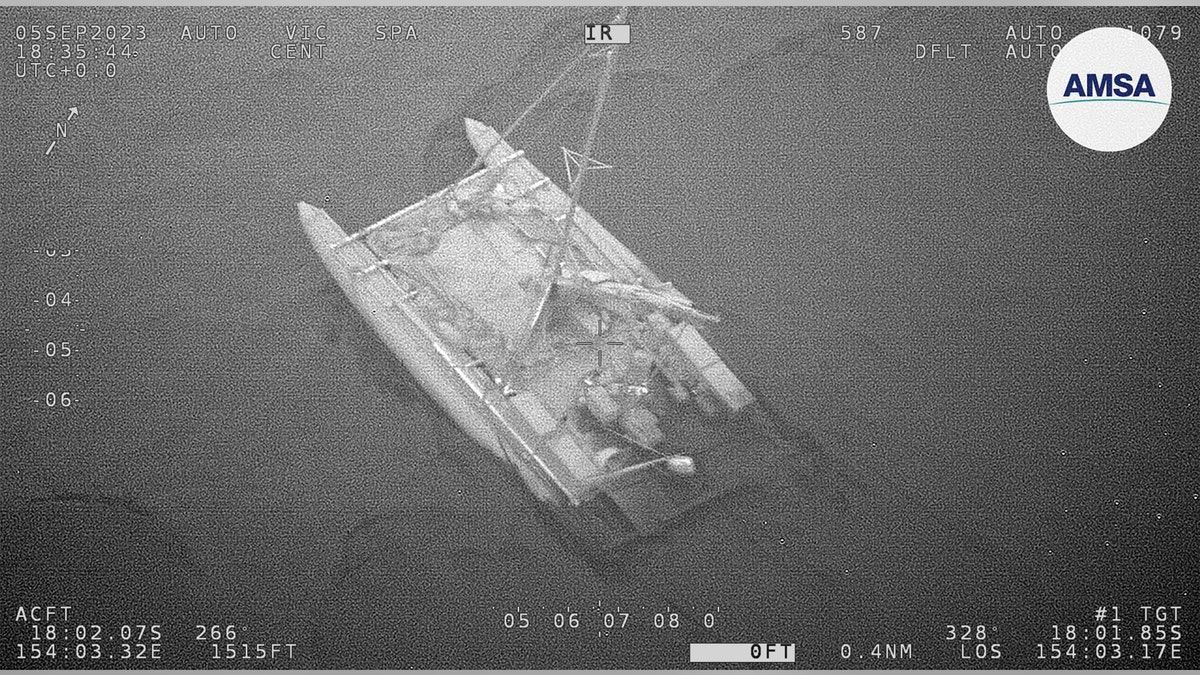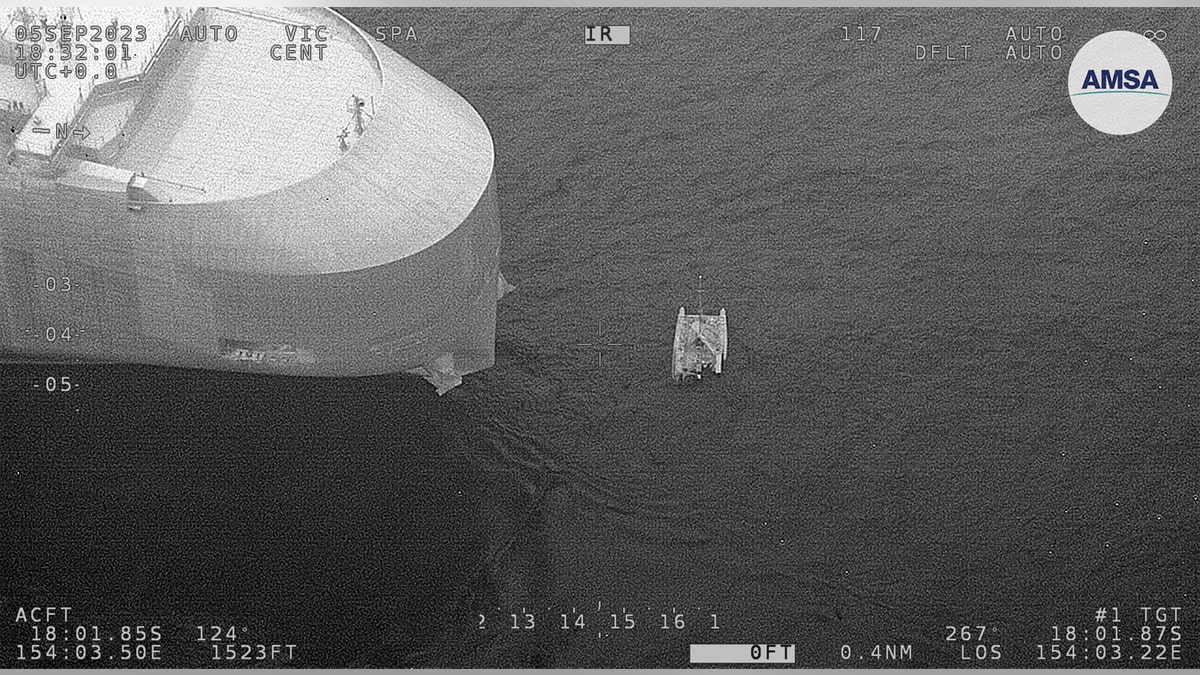Australian Maritime Safety Authority rescues 3 sailors after sharks attack boat
The Australian Maritime Safety Authority (AMSA) rescued three people on board a 30-foot catamaran in the Coral Sea after sharks appeared to attack the boat. (Video credit: AMSA)
The Australian Maritime Safety Authority rescued three sailors stranded in the Coral Sea on Wednesday after several shark attacks left their vessel significantly damaged.
AMSA said it responded to an emergency position-indicating radio beacon (EPIRB) from a 9-meter (30-foot) inflatable catamaran Tion at around 1:30 a.m. local time on Wednesday. Three men – one French and two Russians – between the ages of 28 and 64 were on board the vessel.
The men were sailing from the Pacific Island nation of Vanuatu to Cairns, Australia, and were more than 500 miles east of the Australian coast when rescuers reached them.
At the location, it was noted that both of the boat's hulls were damaged by "several shark attacks," AMSA reported.
SHARKS: 12 INTERESTING FACTS ABOUT THE MARINE FISH

The Australian Maritime Safety Authority said it rescued three men from the Coral Sea after their 30-foot inflatable catamaran was damaged in "several shark attacks." (Australian Maritime Safety Authority)
At the request of AMSA, Panamanian-flagged vehicle carrier "Dugong Ace" arrived at the scene and successfully rescued the three men, who were expecting to arrive in Brisbane on Thursday. The Cairns-based Challenger Rescue Aircraft was also deployed to the location.
Joe Zeller, duty manager at the AMSA's Canberra response center, said all three men are "healthy and well," adding that they were "very happy to be rescued."
2 RECOVERING AFTER LABOR DAY SHARK BITES AT SAME FLORIDA BEACH, OFFICIALS SAY
Aerial photos taken by the agency showed major damage to the partially submerged catamaran, and the front section of one hull could be seen completely broken off.
Zeller said the GPS-encoded EPIRB allowed the sailors' location to be quickly pinpointed, so that a life-saving rescue could take place.

The three sailors were traveling from the Pacific Island Nation of Vanuatu to Cairns, Australia, when their boat was significantly damaged by sharks. They were more than 500 miles east of the Australian coast when rescuers reached them. (Australian Maritime Safety Authority)
The AMSA described this incident as a "timely reminder" to never sail without a distress beacon.
"GPS-equipped EPIRBs and personal locater beacons (PLBs) can save your life in an emergency. Make sure your distress beacon is properly registered with AMSA." the agency wrote.
The catamaran's EPIRB was registered in Russia, according to AMSA.
CLICK HERE TO GET THE FOX NEWS APP
A trip from Vanuatu to Australia on the type of vessel the men were on would typically take around two to three weeks, Zeller added.









































